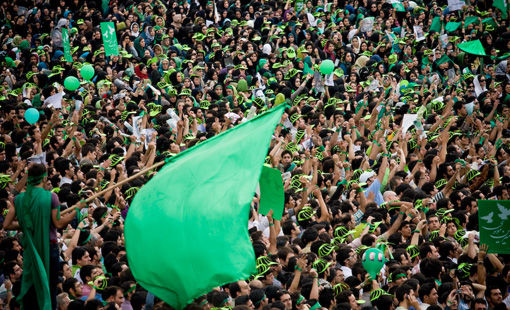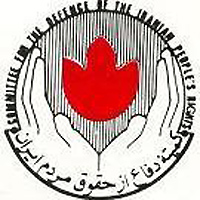
Iran’s return to the international fold has been negotiated over a long period, and is not without caveats, but it certainly marks a significant change in relations with the United States and the European Union in particular.
While the focus of attention has been on negotiations relating to Iran’s domestic nuclear energy program, there is no indication that human rights have been on the agenda as part of any discussions.
The international business community is keen to cut the kind of deals which will boost profits, but the position for Iranian trade union and opposition activists is unlikely to look very different than it did before the deal. Iranian President Hassan Rouhani‘s visit to Italy and France will no doubt have sealed the Airbus deal, but that will not free a single unjustly imprisoned trade unionist in Iran.
By the same token, the coming elections in Iran are little more than the veneer of democracy, as the ability to stand is tightly controlled by the Guardian Council and the Supreme Leader, Ayatollah Ali Khamenei.Elections to the Majlis (parliament) are held every four years and prominent figures hoping to appear on the ballot need to determine beforehand whether Khamenei and his inner circle of advisers will oppose their candidacy.
It is said that the Supreme Leader does not explicitly advise anyone against running, but his office or other high-ranking officials will often reveal his views on specific cases.Also, when candidates register their names, the Guardian Council has to qualify them based on several criteria, notably their full “practical” loyalty to the Supreme Leader and their recognition of his authority over all matters of the state.
Finally, once elections are complete, the Guardian Council is solely responsible for endorsing the final result, despite sharing supervision over the vote counting process with the Interior Ministry.
Through these methods, the Islamic Republic can claim that the elections are free and fair simply because everyone is eligible to vote.
While attempting to control the outcome of the elections, the regime’s leaders are keen for a massive turnout for the contest in four weeks’ time and have mobilized their entire publicity machine.
The turnout percentage in this election has assumed special significance because it will be seen as a measure of the popularity of the regime and a test of its political stability. However, this disguises the high degree of manipulation which precedes the selection of those who appear on the ballot at all.
Given the conservative nature of the regime in Iran and the fears of many hardliners that Rouhani is “too reformist,” conservatives will likely take the opportunity to further squeeze out the limited voices for change which there may be in the Majlis.
Of the 3,000 candidates put forward by the reformists, only 30 have been allowed to stand by the Guardian Council – a mere one in 100 wishing to run.It is worth remembering that these are candidates who are deemed “reformist” within the very narrow confines of that term in Iranian politics.
There are no candidates opposed to the regime, standing for the rights of women, or actively promoting the right of Iranian workers to engage in free and open trade union activity.
Persistent reports in Iranian opposition media indicate that the powerful Revolutionary Guards are confident that at least 180 out of the 290 seats of the new Majlis will be filled with their candidates, carefully selected from within the ranks of their commanders and ideologists.
In total, 40 percent of the 12,000 hopefuls for parliamentary election – including a significant number of MPs in the outgoing Majlis – have failed to qualify.
Among those disqualified are Ali Motahari, a persistent critic of the hardline Islamists in the regime, and Rasoul Montajabnia, the vice-president of the pro-reform National Trust Party (known in Persian asEtemad-e Melli). The party was founded by Mehdi Karoubi, one of the two reformist candidates who contestedthe 2009 presidential elections.Others excluded are Majid Farahani, the head of the pro-reform Nedaye Iranian Party, and Akbar Alami, a former reformist member of parliament.
Sadegh Zibakalam, professor of political science at Tehran University, stated that the reformists now expected the president to step forward in response to the massive number of refused candidates.
“According to the constitution, as the president and the country’s second power [after the leader] Mr. Rouhani should supervise the implementation of the constitution. So now everyone’s expecting him to protest against the wide disqualifications.”
Jamshid Ahmadi, assistant general secretary of the solidarity group Committee for the Defense of the Iranian People’s Rights (CODIR), has called into question the legitimacy of the elections.”It is clear that many potential candidates have been excluded due to their political opinions,” he said.
“That hardly makes for an electoral process that can, in any normal sense, be described as free and fair,” Ahmadi continued.”Until real opposition candidates are allowed to stand and the Iranian regime cleans up its act on human rights, the elections will be little more than the illusion of democracy.”
This article originally appeared in the Morning Star.
Photo: Mousavi campaign rally in Tehran. | Wikimedia (CC)

MOST POPULAR TODAY

High Court essentially bans demonstrations, freedom of assembly in Deep South

Zionist organizations leading campaign to stop ceasefire resolutions in D.C. area

UN warns that Israel is still blocking humanitarian aid to Gaza


U.S. imperialism’s ‘ironclad’ support for Israel increases fascist danger at home






Comments